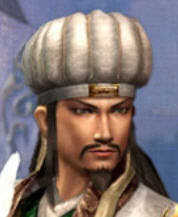The Way of the General - Part IV
 What Hurts the People?
What Hurts the People?There are five things that hurt the people:
1. There are local officials who use public office for personal benefit, taking improper advantage of their authority, holding weapons in one hand and people’s livelihood in the other, corrupting their offices, and bleeding the people.
2. There are cases where serious offenses are given light penalties; there is inequality before the law, and the innocents are subjected to punishment, even execution. Sometimes serious crimes are pardoned, the strong are supported, and the weak are oppressed. Harsh penalties are applied, unjustly torturing people to get at facts.
3. Sometimes there are officials who condone crime and vice, punishing those who protest against this, cutting off the avenue of appeal and hiding the truth, plundering and ruining lives, unjust and arbitrary.
4. Sometimes there are senior officials who repeatedly change department heads so as to monopolize the government administration, favoring their friends and relatives while treating those they dislike with unjust harshness, oppressive in their actions, prejudiced and unruly. They also use taxation to reap profit, enriching themselves and their families by exactions and fraud.
5. Sometimes local officials extensively tailor awards and fines, welfare projects, and general expenditures, arbitrarily determining prices and measures, with the result that people lose their jobs. These five things are harmful to the people, and anyone who does any of these should be dismissed from the office.
Application:
The Han Dynasty arose like a Phoenix from the ashes of the Qin Dynasty. It would last over a period of four centuries and is commonly considered to be one of the greatest periods in China. Conversely, the Qin Dynasty was torn asunder within a decade of its’ establishment? What contributed to the rise and longevity of the Han Dynasty? This was largely due to its’ policies that avoided hurting people:
No Personal Benefit Allowed, Crime and Vice Punished
Emperor Wu-Di combined Legalist methods with the Confucian ideal that led to a civil service nomination system and compulsory knowledge of Confucian classics among candidates for the imperial bureaucracy. Officials were graded by rank and salary, were appointed to posts based on the merit of their skills rather than aristocratic clan affiliation, and were subject to dismissal, demotion, and transfer to different administrative regions. Thus, local officials performed their duties up to the standards required and kept the Empire at peace.
Inequitable Laws Avoided, Just Laws Perpetuated
The legal spirit of the Han dynasty was the fullest under Prime Minister Dong Zhongshu, a Confucianism who served during the reign of Emperor Wu-Di. Under Prime Minister Dong, every legal decision or ruling had to be accompanied by an explanation that explained why the decision was made and under what law the ruling was based on. Prime Minister Dong further suggested that masters not be able to kill their slaves at will. This idea took root and remained in China. Thus, the just laws of the Empire maintained the safety of the nation.
Taxation Minimised and Frugality in Expenditure
The entire Han Empire was heavily dependent upon its county governors responsible as they could decide military policy, economic regulations, and legal matters in the county they presided over.
The main tax exacted on the population during Han times was a poll tax, fixed at a rate of 120 government-issued coins for adults. For adults there was also the addition of mandatory labor service for one month out of the year. Besides the poll tax, there was also the land tax administered by county and commandery officials. This was set by the government at a relatively low rate of one-thirtieth of the collected harvest.
With a large amount of revenue in stable times, the Han government was able to fund various public works projects and state infrastructure. In the year 3 CE, a formalized nationwide government school system was established under Emperor Ping, with a central school located in the capital Chang'an and local schools in the prefectures and counties. Judicious use of the Empire’s finances benefited the people resulting in a prosperous and virtuous cycle.
Conclusion:
The Han Dynasty flourished and prospered for over four centuries by attending to its people’s needs. The earlier Emperors were wise and not given to excess. The officials were upright and attended to its’ duties. During this Golden Age, intellectual, literary, and artistic endeavors revived and flourished during the Han Dynasty. These included the invention of paper, forging of high durable steel, hydraulic-powered armillary sphere and seismometer. Thus, do not hurt the people and the nation can be kept tranquil and peaceful.
Coming back to the present, do you think our Malaysian Government is governing in accordance to Zhuge Liang's principle of not hurting people? I would appreciate your views on this.







2 comments:
Nice analysis on Zhuge Liang's text! The Han dynasty was a great dynasty until Huan and Ling took over.
Dear MarketingDeviant,
Thanks for dropping by and commenting.
Yes, they hastened the decline of the Han Empire. That's the problem with great civilizations.
We are always too dependent on our Leaders, until this very day.
Rgds
Post a Comment